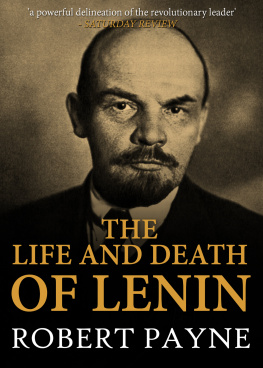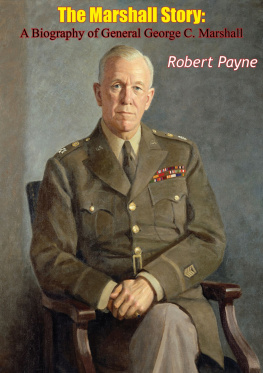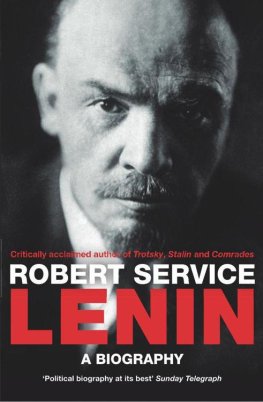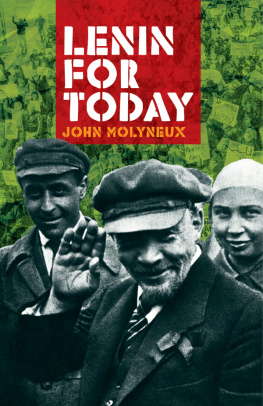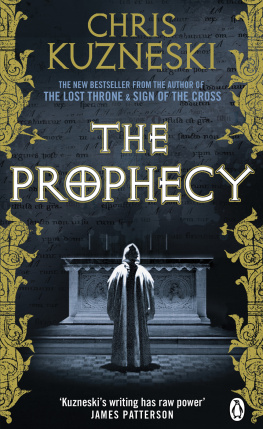The Life and Death of Lenin
Robert Payne
Copyright Sheila Lalwani Payne 1964
The right of Robert Payne to be identified as the author of this work has been asserted by him in accordance with the Copyright, Designs and Patents Act, 1988.
First published in the United Kingdom in 1964 by W. H. Allen & Co.
First published in the United States in 1964 by Simon and Schuster.
This edition published in 2015 by Endeavour Press Ltd.
To the Martyrs
*
Do not believe we have forgotten Marx, Engels and Lenin. They will not be forgotten until shrimp learn to sing.
Nikita Khrushchev
Table of Contents
Introduction
A specter haunts the world the specter of Lenin.
No man ever did more to change the face of Russia or the world. More than anyone else more than Alexander the Great or Tamerlane or Napoleon he has changed the course of the worlds history. What is now known as Communism was his invention, the child of his resourceful brain, shaped during long years of exile. His fanatical will was like a lever which attempted to throw the whole globe into an orbit more to his liking; and because he pressed so hard on the lever, the earth still shudders.
To understand Communism, it is necessary to confront the man who spun the theory and its attendant dogmas out of his own entrails. There could have been no Russian Revolution without him. He called himself a Marxist, but in fact he hammered and bent Marx to his own will, using Marx whenever it was necessary and jettisoning him whenever it served his purpose. He was closer to the medieval autocrats than to Marx.
Because he reached a position of towering eminence in world history, it was inevitable that legends should grow about him. In its simplest form the legend describes the son of a poor schoolmaster who proclaimed himself a revolutionary at a very early age and was thrown into jail and sentenced to the living death of hard labor in Siberia. Then he escaped from Russia and led the life of an impoverished exile in Europe until in 1917 he returned to Petrograd and led the workers in an armed uprising against the Tsar. Thereafter, living calmly and modestly, a detached scholar with no vices, he ruled over Russia as the acknowledged dictator until his death of a cerebral hemorrhage in 1924. He was the epitome of the Russian genius, a man of pure Russian ancestry, with gifts which were typically Russian.
As we shall see, the legend has no relation to the man. He was the son not of a poor schoolmaster, but of the superintendent of education over an entire province, a landowner and hereditary nobleman who was addressed as Your Excellency. Arrested and sent to Siberia, Lenin lived there comfortably, quietly, in the seclusion necessary for his work; he was never physically assaulted, and he was permitted to carry a gun. In Europe, too, he lived comfortably in middle-class comfort: at least three immense fortunes passed at various times through his hands. Like other men, he had mistresses, and he was not always the detached scholar. When he returned to Petrograd he conquered the city with the help of Trotsky and the armed forces, the sailors of the Baltic fleet and the local garrisons. The Tsar had been dethroned long before. There was no drop of Russian blood in him, and he died of poison administered at the orders of Stalin.
He was a man of astonishing energy and directness, but also of great inner turmoil, constantly suffering from nervous prostration, at the mercy of dark impulses of destruction. There were things he could see with blinding clarity, and others which he saw only dimly. He could see, for example, that many of the institutions built by man serve to increase rather than to diminish human misery, and he knew what institutions were corrupt and could easily be destroyed; but the institutions he built in their place were equally corrupt and equally dangerous to human society. He was a man who genuinely believed that he was born to make life happier for the people, but at the end of his life he, like Shigalov in Dostoyevskys The Possessed , could say, I am perplexed by my own data; my conclusion is in direct contradiction of the original idea with which I start. Starting with unlimited freedom, I end with unlimited despotism. The greatest moment of Lenins life was when, already dying, he apologized to the Russian workers for his crime.
In the following pages I have attempted to divorce Lenin from his legend and to see him whole, alive and breathing. I wanted to know how he walked through life, and how he laughed, and what he said in those moments when he was not holding a tight rein on himself, and how he came to those exclusive fanatical dogmas which once threatened to destroy the world. I wanted to see him as he braced himself for his most dangerous exploits, and see whether he was afraid.
I wanted to know, too, how he dealt with the women who entered his life, and whether he had enduring friendships with men. I was especially interested in his notebooks, which enable us to catch his thought on the wing. I have quoted him at length, because his living voice sometimes comes through even the most labored translation. I have relied chiefly on his collected works and the reminiscences of the people who knew him; and since Stalin played such a small role in his life, there seemed no necessity to introduce him at any length, and so he appears as an occasional footnote in the story.
It is not always easy to dissociate a man from his legend, for the legend is sometimes inextricably woven into his life; and Lenin himself was perfectly aware that he possessed legendary qualities. He was a man of vast potentialities for good and evil, and of such furious energy that even when he was dead, his power continued to reach out from the grave. For the rest, this is a study of an embattled, tormented, and variously gifted man who is perhaps the only indisputable political genius to emerge in our time.
Part One The Forerunner
Our task is total, terrible, universal and merciless destruction
Chapter One The Forerunner
The prisoner who stood in the dock in the Moscow District Court on January 20, 1873 did not resemble the ordinary picture of a revolutionary. He was short, stocky and rather commonplace. He had a long dark face, a flat nose, thick chestnut-colored hair, and piercing blue eyes. He was frail, and he lived on his nervous energy. Stories were told of his extraordinary adventures; he had invented most of them, but those that really happened were unbelievable. In the court he wore a black jacket and a dirty waistcoat, and he held himself with an air of contemptuous disdain, rarely paying any attention to the judges, biting his fingernails. A bemused reporter at the trial wrote that the most extraordinary thing about him was that he was not in the least extraordinary. He was twenty-four, and the court was in awe of him.
The prisoners name was Sergey Genadievich Nechayev, and he is almost forgotten today. Few people read his writings, and only a handful of students of nineteenth-century Russia have been concerned with his existence. Yet singlehandedly he hammered out a code of revolutionary conduct which was to have a convulsive effect on the world. He was one of those whom the Russian philosopher Chernyshevsky described as the movers of the movers. He was the shout that let loose the avalanche.
In his upbringing there was nothing to suggest there would ever come a time when even the Tsar would be afraid of him. He was born on September 20, 1847 at Ivanovo, near Vladimir, a hundred miles to the northeast of Moscow. In those days Ivanovo was a small textile town, hardly more than an overgrown village: it had not yet blossomed into the great manufacturing city of Ivanovo Voznesensk. His father was an innkeeper, sometime small merchant, artisan and factotum, who married the daughter of a house painter from Kostroma. After the marriage he followed his father-in-laws trade. He was on good terms with the local gentry, attending weddings and putting up the decorations. He was a good worker and much sought after.

